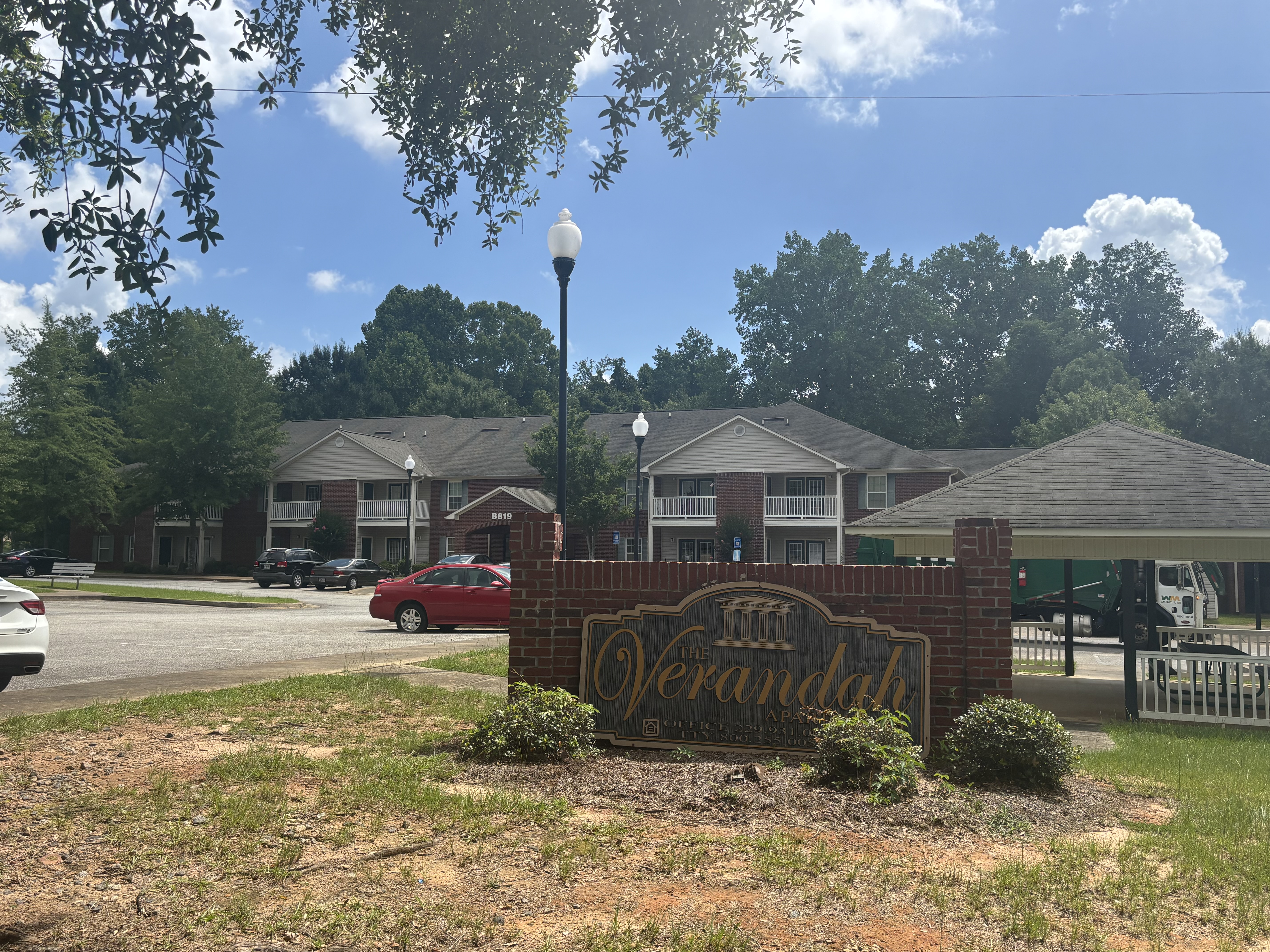Budget, employee incentives, sign ordinance and business for 2023 were addressed by Americus City Council
Published 2:21 pm Sunday, December 11, 2022
|
Getting your Trinity Audio player ready...
|
Tracy K. Hall
Mayor and City Council of Americus met on 12.08.22 for their monthly agenda setting meeting. Being the end of the year, many items to establish ongoing business of 2023 were discussed. First of these was a review of the 2023 budget. The total budget for the city is about 35.1 million dollars. There is a 5% non-merit-based employee salary increase included in the budget. There are three additional city employee positions recommended for 2023. The plan includes 178 full time employees, seven elected officials and six part time employees. The mill rate will remain the same as 2022 at 11.12. The overall budget is about $1.3 million over the 2021 budget. Of this, salaries, benefits and health insurance make up 38% of the budget. The monies collected to provide funding come from various sources with property taxes contributing 16%, “other taxes” contributing 16% and utilities contributing 44%. Water and storm water charges will stay the same. Garbage collection will go up by 3%, there is no margin increase planned for natural gas. The reading of the budget is a public hearing and members of the public have an opportunity to speak or question the budget. There were no comments at this reading.
Trending
Council did not take a formal public vote in an open meeting regarding giving city employees “pre-Thanksgiving incentive pay.” Despite this, the incentive has already been paid the employees. The amount was $2,374 per full time employee and $1,000 per part time employee. The decision to spend funds in this manner was “ratified” at the agenda setting meeting. The motion passed unanimously. The funds came from surplus funds generated by additional tax revenue and as Lee Kinnamon stated, “largely due to unfilled positions.” This is the second “incentive” employees have been given in 2022. They were also given “retention incentives” which were funded out of the American Rescue Plan Act of 2021 (ARPA). ARPA funds were paid in two installments, one being received in 2021 and the second being in 2022. The total ARPA funds were in excess to 5.5 million dollars. About $2.8 million of that was paid in 2021. The city did not immediately respond to the amount received in 2022 and an open records request has been submitted on 12.09.22. The council of 2021 also outlined 11 projects the ARPA funding would pay for, the new trolley, several software upgrades and addressing storm drain infrastructure being some of the examples of the fund’s designations. The open records request also asks for the status of completion of these projects and what it was spent on if outside of these expenditures, such as the “retention incentive” voted on in August of 2022. The August incentive was not a flat rate as the November one was. The formula had several points of consideration in it to include how much the employee is paid. Employees making the least were set to get a larger percentage of their salary than those making the most. When investigated, there was not an immediate comment about the total of either of the amounts the city employees received. There was also no immediate comment made on how much surplus was accrued during 2022, nor if all the surplus was given to employees or if citizens can expect to see any of these funds to be applied to projects which benefit the city at large or individual taxpayers directly. In 2020 and 2021, the council also gave the employees incentives, however they also rolled back existing taxes and although they were set to raise the taxes as per the working budget set in 9/2021, they were able to avoid raising them for 2022. The 2023 mill rate is set to remain the same as 2022.
The ongoing sign ordinance was addressed. This has been brought to Nelson Brown’s attention because a church in Kelvin Pless’ District 5 had put up a lighted sign on their property which is zoned “R1” or Residential. The ordinance does not allow for lighted signs to be put on such zoned properties. In most cases, R1 properties are residential in nature, neighborhoods are typically zoned as R1. Nelson Brown spoke on the issue and ultimately made a motion to draft a change to the ordinance. As established in last month’s meeting there appear to be two options to make the sign allowable under the current ordinance. The first is to rezone the property. In this case, the property would need to be rezoned to Institutional or “I.” The second was to change the ordinance to allow for a lighted sign on a property designated as R1. Brown presented a third option this month, which still fell under amending the ordinance, but would allow “churches or place of worship” to legally have a lighted sign on their property. Brown stated it was a “win-win situation as far as I am concerned but that’s up to mayor and council when I get through.” When he was through stating his intent, he asked City Attorney, Jimmy Skipper, to “chime in about what I said.” Skipper repeated back what he understood the council member to say. Jimmy stated he understood Brown to say, as a “motion to direct me, as the city attorney, to draft an amendment to the current sign ordinance to allow churches and other places of worship to have lighted signs in R1 zoning districts in the City of Americus.” Brown agreed Skipper had understood him correctly. Juanita Wilson took the floor and stated, “when we start changing the ordinance, when we start putting amendments to them and doing all of that, we create confusion.” She reports the city manager and others have “talked to them (church), we have offered them a solution.” She went on to say, “We have said to them we will come and do it, we will show them how to do it (follow the rezoning protocol).” Then she expressed she was not willing to vote to change the ordinance. Daryl Dowdell took the floor and asked Wilson what was her recommendation, and Wilson responded to rezone.
At this point Roger Willis explained the rezoning process. The request goes to rezoning, they assess and then make a recommendation as to whether to rezone. The planning commission, made up of appointed citizens, then reviews the information and makes a recommendation. The next step is to bring those recommendations before council for a vote. Wilson responded, “If they had followed our recommendations, this would be over with.” She went on to say, “all of us would like to see them get the sign up. There’s nobody sitting at the table, that I’ve spoken to, that don’t want to see the sign up.” Kinnamon established it will set a precedent for ordinances to be changed. Dowdell asked how an Institutional zoning would affect the church. Willis responded, “Institutional allows for an electronic message board to be put up.” Willis confirmed that none of the operations of the church or their tax status would change if the zoning classification changed. Willis added his office would need a current survey, an application, review by Willis’ office, review by the planning commission, and a recommendation be made to mayor and council, taking about a month. Then a public hearing has to be published which takes another month. In the end, Willis reports “it’s about a two-to-three-month process to get it rezoned.” Willis confirmed the church would have to pay for the survey, which is done by someone of their choosing in the private sector, “because you want to know exactly what is being rezoned. You can’t just go by what Q Public says.” A survey gives definite boundaries to the property/parcel. Willis went on to say, to follow the ordinance it would have to be in close proximity to the entrance to give the distance required from the existing “neighbors.” Dowdell then asked how the church feels about the rezoning. Brown answered the question. Brown reports the cost of the survey, and a $250 application fee would be required. Willis stated he was “99% sure” the application fee would be waived since they are a non-profit entity. Brown went on to say they would like “to take a route which is not going to cost the church any additional funds.”
Nicole Smith asked the city manager her recommendation. Powell stated to follow the process. “When you set precedence, it is very difficult to say no to the next person that comes along—when you say house of worship that could be Satan worshipers too.” Charles Christmas stated he’s not in favor of the ordinance change and agreed with Wilson. Christmas is still invested in a solution, but not changing the ordinance. Pless stood by his former comments. He mentioned again his own church had to the follow the same ordinance. Brown went on record as saying, “I don’t think you ought to have to pay for a survey which is required.” Dowdell asked of Willis if there was any way the survey fee could be waived. Willis confirmed “that is done by a private provider, not the city.” Jimmy Skipper then reviewed the law that a survey is required with every application to change zoning. Kinnamon then called for the vote with no further comments. Brown again stated he wanted Skipper to draft an amendment to exclude churches and houses of worship from the ordinance, “because I don’t feel the church should have to pay the extra money for the survey.” Dowdell seconded the motion and the vote split evenly with Brown, Dowdell and Smith voting in favor of having Skipper draft an amendment and Christmas, Pless and Wilson voting against drafting an amendment. Kinnamon then broke the tie by opposing the drafting of amendment which would be the first step in considering changing the ordinance. Kinnamon then suggested again they take the rezoning route in order to keep their sign. Brown then told the church members that in his opinion, based on what had been expressed by council in the meeting, “thinks it will pass.”
Charles Christmas was named as mayor pro tempore and it was moved to the consent agenda. The mayor pro tempore stands in lieu of the mayor in the case Kinnamon is unable to attend to the business of the council. The 2023 municipal judge position was addressed. The current judge, Michael Green, was the only applicant to submit interest. Dowdell expressed he was not willing to have the item go to the consent agenda. The next item to bring discussion was appointing the Americus Times Recorder as the legal gazette. Kinnamon asked for the state requirements on the item. Skipper reported there are several elements which have to be made, however “they are the only newspaper that publishes in Sumter County that would qualify.” The legal gazette is responsible for printing legal ads submitted by the city. Brown took the floor and asked if a representative of the Times Recorder was present by Zoom. Kinnamon responded Tracy Hall was in attendance virtually. Brown went on to state “there were a lot of concerns about the Times Recorder”, and he specifically had concerns. “I have some concerns, that, not all the time, that it looks like the scale of balance—it’s unbalanced sometimes. I look for news media to be straight balanced, to print it like it is.” Kinnamon then told Brown the purpose under law “does not pertain to news coverage or editorial, it has to do with printing of the statutory required notifications, that’s the whole purpose.” Brown then went on to say, “if I am going to say yes, I would like for somebody to really—I understand the requirements—I understand that, but I still have some concerns and why I like for them to be here–I still have some concerns. You know why the reason, why the concerns there? Because the public, the people we represent, got a concern so I had to say that, but I understand their primary purpose.” After plans were made to contact someone from the Times Recorder, City Attorney, Jimmy Skipper interjected. “I would suggest you do not want to give the appearance of making the legal decision of which paper is going to be the legal gazette based on what they publish in the newspaper as it has nothing to do with the legal obligations they have, because that would be a violation, you can’t do that. And so, the timing of somebody appearing, you know—y’all can ask whoever you want to come–but what you don’t want to do is end up making it look like you’re deciding who is going to be the legal gazette, particularly when there is only one qualified.” Brown acquiesced on his request and the item went to the consent agenda.
The meeting, calendar and holiday schedule went to consent after Daryl Dowdell asked the employees to be given Good Friday as a holiday. Good Friday is a religious observance of the crucifixion of Jesus Christ as per the Christian faith. Council voted for employees to receive Juneteenth as a holiday earlier in the year, this will add an additional holiday for the 2023 year. The total number of holidays observed will be 13.
Trending
The next item gathering conversation is the Americus and Sumter County Payroll Development Authority submitting a request for their office to continue to be housed in the Rees Park building. Juanita Wilson questioned Skipper on a potential legal violation to allow the PDA, which is tasked with bringing in new business for economic growth of the county to operate. Wilson went on to say it was a day-to-day operation and the city would be in violation. It was unclear what the violation would be, however, Skipper reported he “didn’t see it that way.” And said he would research the question. The PDA has been located in the Rees Park building along with the chamber of commerce and One Sumter for a significant amount of time. Dowdell reports he has not had time to review the emails regarding the request and is not prepared to make a vote on it. The item did not go to consent.
The city writes down taxes every year. This year, the city requested to write off taxes due since 2015. Utilities are written off as well. Taxes in excess of $20,000 were written down. Utilities bills in excess of $55,000 were written off. If a new service is asked for, the outstanding balance will be added to establish a new service. This is a grand total to include some who will go to collections, and others which will be completely written off. As with the 2021 council there were questions about writing down/off. Although the city could write it off/down, they are avenues to continue pursuance. Christmas asked what actions were being taken once they were voted on to be forgiven, “Is it an out of sight, out of mind?” and he also wanted to know if the people identified have bought other properties in the city. The response being it was difficult to determine. Additionally, people owing taxes were sometimes dead or had filed bankruptcy. Skipper added what could be done as far as collection procedures. The agenda package posted on the City of Americus website identifies the names of entities owing back taxes as well as the entities/people who owe utility monies to the city.
The city recommended not to honor an overage bill of $18,000 on a $25,000 project pertaining to Well 11. The council voted unanimously to not pay the overage amount.
Other items went to the consent agenda with acceptance by all the council members, to include the Americus Police Department receiving ballistic wear which was procured by being awarded a grant.
Georgia Department of Transportation is making some movement on the infrastructure issues at Church and Lee intersection. The “park” at the bottom of the via duct, which was funded by federal dollars, has some lighting needs which the Georgia Department of Transportation will be addressing. There are two new businesses coming in the area of Taco Bell and a tire dealership will be moving in the old Ryan’s building, most recently occupied by a short-lived restaurant. GDOT will also be addressing some curbing issues around Chick-Fil-A.
The council then entered in executive session and after coming back into open meeting it was adjourned. Council meetings are open to the public and will hear remarks by citizens who follow a process which starts with putting in a request to city clerk. The voting meeting will be on December 15, 2022, at 6pm in the public safety building. The meeting can also be joined virtually. The meeting number and log in information as well as contacts for the elected may also be found on the city’s website at americusga.gov.






